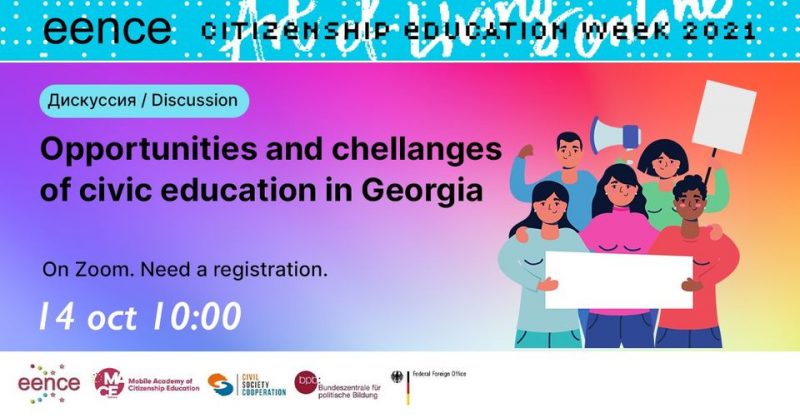Georgia Day was held within the framework of the Citizenship Education Week
Instructors and experts from this country have prepared a number of interesting events affecting various aspects of civic education.
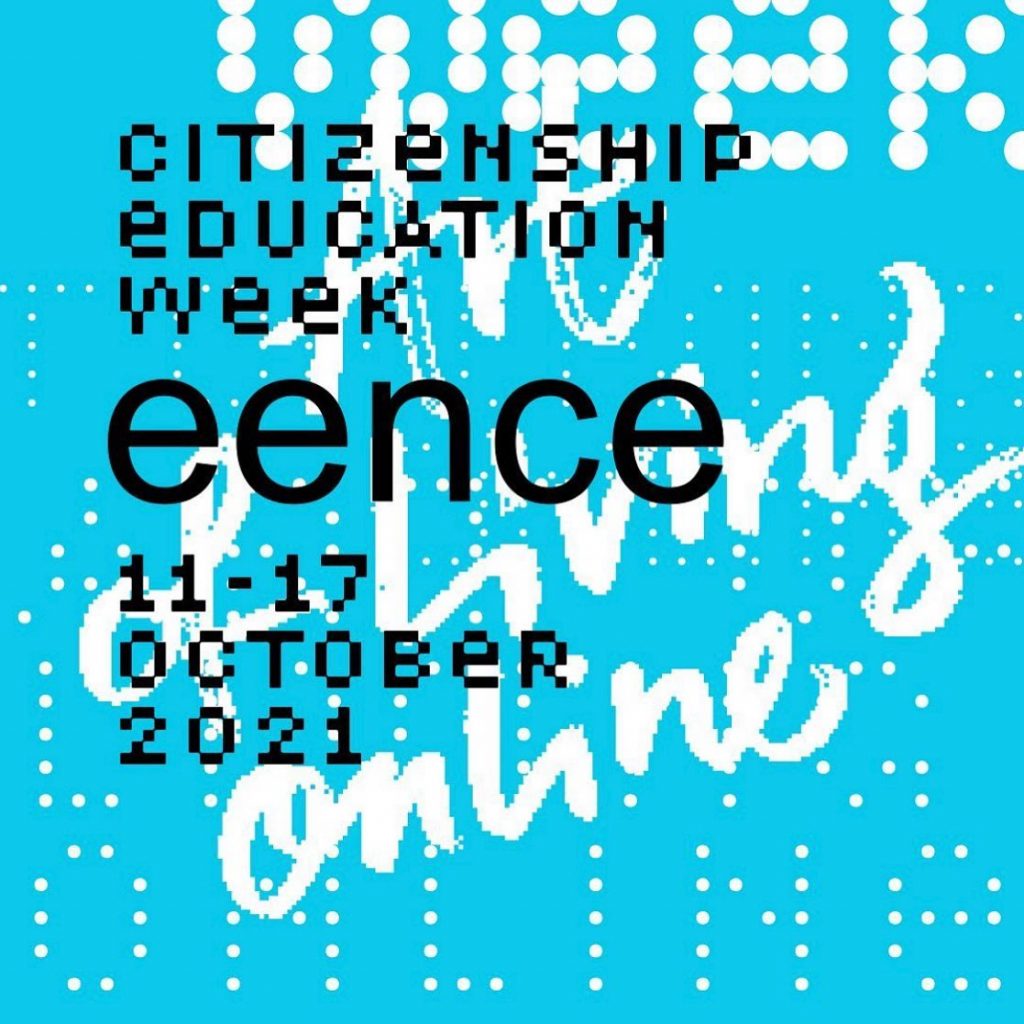
The Day of Georgia began with a discussion about the opportunities and problems of civic education in the country.
Moderator Maka Bibileishvili, Executive Director of CETF, and Nino Gvaramadze, expert of the CE Center for Professional Development of Teachers, reviewed the formal side of civic education in the country.
Maya Katamadze, Director of the Batumi Center for Education, Development and Employment, and I. A. Kitsmarishvili, a teacher of the CE, also discussed the topic of non-formal education.
The participants of the discussion noted that despite the fact that both educational institutions and NGOs are engaged in civic education, there are still many problems in this area.
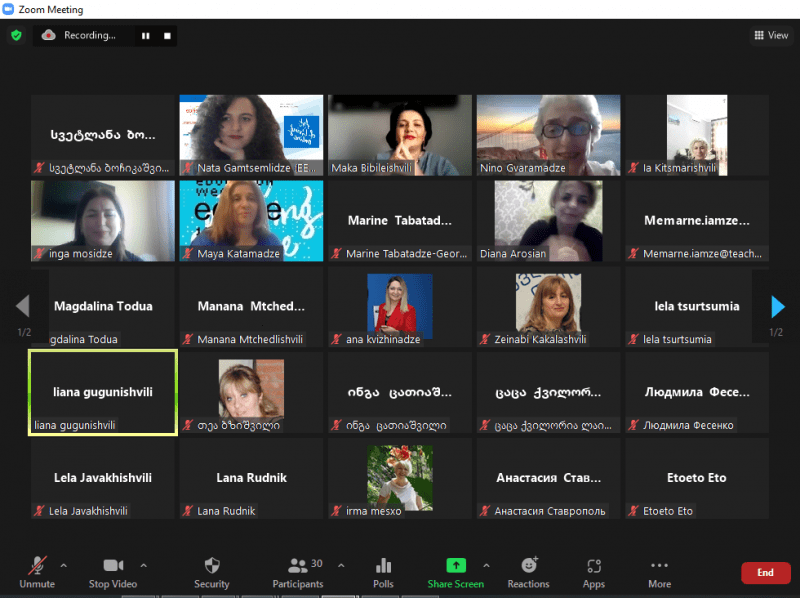
Among the problems is the lack of understanding by many teachers and teachers of the importance of teaching civic education, the “soviet” mentality, which is still characteristic of some teachers.
Among the topics that are most relevant among the participants of civic education programs in Georgia are human rights, the prevention of early marriage, and the development of competencies important for active participation in society.
The participants of the discussion talked about different practices of civic education that are being implemented in different regions of Georgia.
The second event of the day was the presentation of the representative of the National Bank of Georgia, Senior Specialist of the Department of Financial Education Tinatin Gujabidze.
She revealed the topic of financial education as part of civic education in Georgia and shared an example of best practice with the participants.
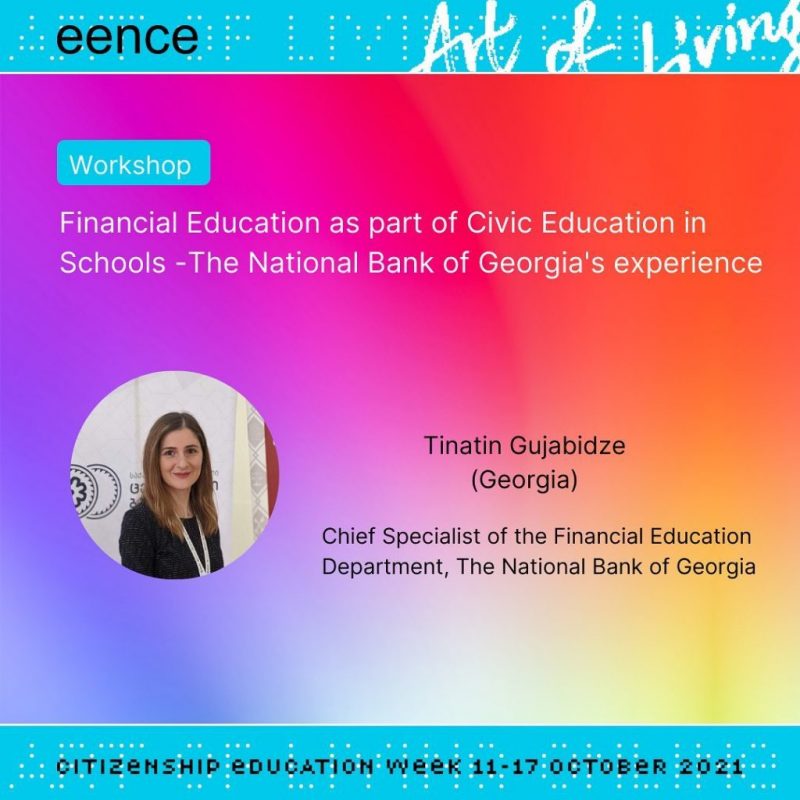
Tinatin Gujabidze spoke about the experience of the financial literacy program, which is being implemented in Georgian schools with the support of the National Bank of Georgia. After the presentation, the speaker answered questions from the audience.
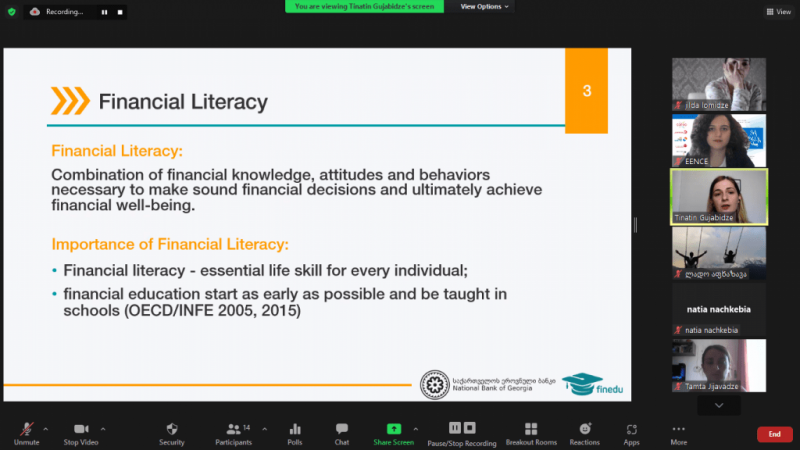
A lively discussion unfolded at the seminar “Critical Hermeneutics, critical Cosmopolitanism and critical Pedagogy – what teachers teach to teach”, which was conducted by Ekuna Gogoberishvili, a graduate student of comparative education at Stockholm University, with extensive experience working with youth and teachers.
During the session, she presented her research interests – how critical perspectives are applied in teacher education together – with results and recommendations.
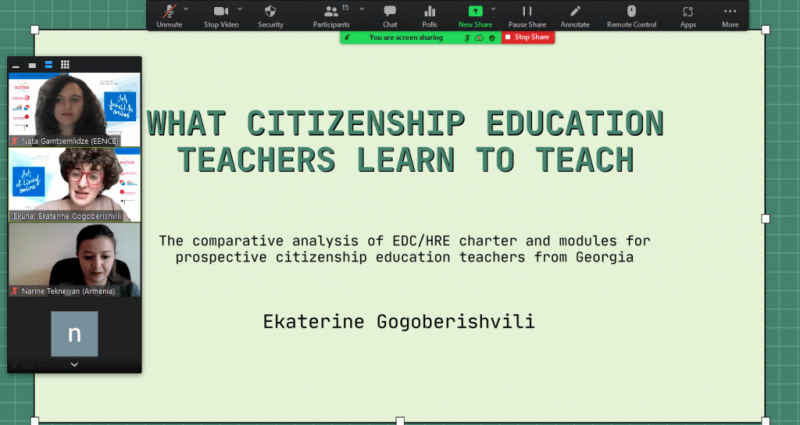
The culmination of the day was the presentation of the Week of Civic Education in Georgian Schools, during which the principals and teachers of participating schools presented their works.
In total, since the beginning of October, more than 50 Georgian schools have participated in the Week of Civic Education and held various events.
Event reports will be available online after the end of the Week and the award ceremony on October 17.
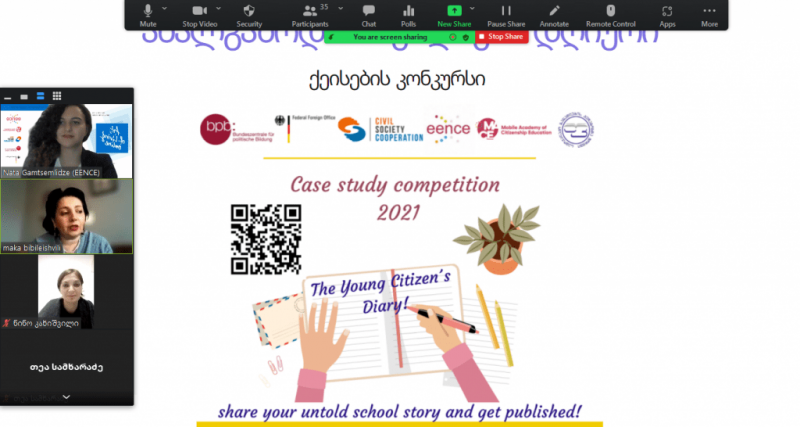
During the training, Conflict Transformation and Peace Building, participants discussed different approaches to conflict resolution based on international practice.
After the event, expert Gvantsa Davitelashvili shared her experience in promoting the youth peace camp of the Council of Europe, developing educational tools and gamification methods for informal activities.
In conclusion, she shared a lot of useful links with the participants of the session.
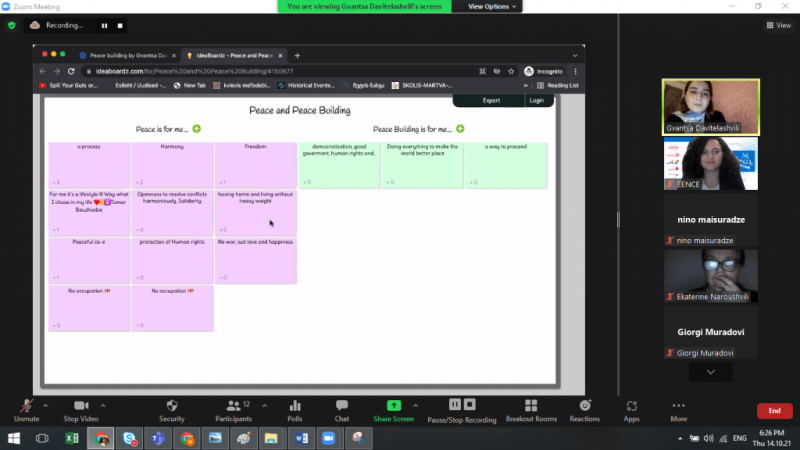
The program of the “georgian” day of the Week was completed by a presentation and a Digital Resistance master class.
It was followed by a discussion on the importance of media literacy and education in the field of digital citizenship: participants held a brainstorming session on how to teach digital citizenship and bring it to youth groups.
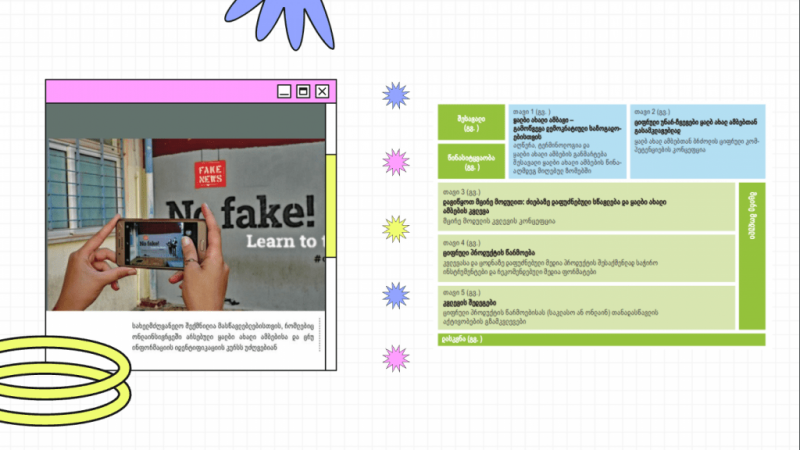
On the same day, several more events of the Week were held, organized by instructors from Azerbaijan, Belarus and Moldova.
The Citizenship Education Week is organized by a consortium of organizations and experts from the East European Network of Citizenship Education (EENCE).
The events of the Week are supported by the Federal Agency for Civic Education (Bundeszentrale für politische Bildung) and the Ministry of Foreign Affairs of Germany.

